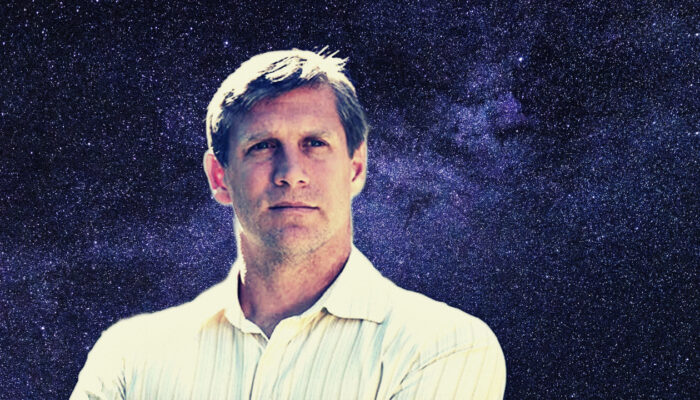
I remember a couple months ago when Michael Shermer, a historian of science and an Atheists for Liberty advisory board member, tweeted an article written by Kate Cohen titled, “America doesn’t need more God. It needs more atheists,” which he directly quoted by stating:
“Say it: ‘I’m an atheist.’
‘The more I say I’m an atheist, the more other people will feel comfortable calling themselves atheists. And the stigma will gradually dissolve.’
Can you imagine? If we all knew how many of us there are?
It would give everyone permission to be honest with their kids and their friends, to grapple with big questions without having to hold on to beliefs they never embraced.’”
Biologist Bret Weinstein replied to Shermer by saying, “I don’t call myself an atheist, and won’t until atheists generally accept that religious faith is an evolutionary adaptation. Absent that, atheism is scientifically incoherent.”
I read this and thought, “Oh God, another one.” It seems like a weird habit by a few intellectual types who, despite clearly fitting the definition of an atheist, still refuse to use the label simply because of certain people they personally don’t want to be correlated with. It comes across as cowardly, but he’s far from the only one who does this.
The astrophysicist Neil DeGrasse Tyson spoke a lot about his refusal of the atheist label. On Big Think, he explained seeing his wiki (which he did not create) claim him to be an atheist, which he attempted to change, only to find the wiki changed it back a week later. After adjusting it to say he is claimed by atheists but is actually an agnostic, it was changed yet again. He went on to say that an agnostic and an atheist are not the same thing.
“Atheists I know who proudly wear the badge are active atheists,” he explained. “They’re like in-your-face atheists and they want to change policies and they’re having debates. I don’t have the time, the interest, the energy to do any of that. I’m a scientist. I’m an educator. My goal is to get people thinking straight in the first place, just get you to be curious about the natural world. That’s what I’m about. I’m not about any of the rest of this.”
A couple of years later on the Joe Rogan Experience, he again expressed his dislike of the atheist label.
“You can look up the dictionary definition of atheists, and it kind of applies to me. But what is the definition of atheist in practice? It is what leading atheists do, and it’s their conduct, and it’s their behavior, and it’s what they say, and it’s their attitude. That is what an atheist is today. Because they’re the most visible exemplars of that word. And most of their conduct, I either don’t agree with or simply don’t engage in.”
The fact that Tyson is acknowledging that the definition “kind of applies” to him, and only criticizes behavior and attitude shows he acknowledges he does not believe in a higher power, which means he’s an atheist.
The conservative author David Horowitz has also criticized atheists and repeatedly identified himself as an agnostic. He tweeted in 2016, “Militant atheism is a religious belief that happens to have led 2 the deaths of several hundred million people,” and added afterwards, “Just to be clear. I am an agnostic. My point is to induce some humility in atheists.”
If we go further back on June 2015, Horowitz wrote an op-ed for the Washington Times about his memoir, You’re Going to Be Dead One Day: A Love Story, discussing his views on faith, spirituality, and atheism, where he stated:
“I am an agnostic, a believer in mysteries that we cannot solve. Being an agnostic does not mean I am closed to faith. On the contrary, it is the humility to recognize that we do not know the answer to the fundamental questions of our existence—whether there is a Divinity that shapes our ends or whether life has no meaning other than that it stops. Atheists are closed to faith. Or to put it more accurately, atheists are devotees of a faith that God does not exist. The atheist faith fosters contempt for religious belief and denies itself the ability to understand why religious people believe as they do other than that they are credulous or mentally disturbed.
“Since atheism is also a faith, the only meaningful question is how this faith—or any faith—affects the lives of its believers. Does it enrich or diminish them? Atheism constricts the vision of its adherents and flattens their thought, denying them access to many inexplicable dimensions of human experience. Agnosticism is skeptical but also keeps the mind open, making its adherents curious about the impact religious faith can have on the meanings of individual lives.”
Horowitz seems to be intentionally ignoring how a large number of atheists are actually from a religious background. Very few of us had an upbringing where we were told that God is a fairy tale and religious people must be oppressed. If you do find someone who was raised like that, then I think a safe bet is they’re communists, and that’s the problem, not atheism. But based on some of his previous comments, I’m not sure if he’s fully aware one doesn’t automatically lead to the other. I think it’s also worth noting that the vast majority (41%) of self-identified agnostics, according to the Pew Research Center, said they don’t believe in God, while only 13% said they don’t know. Therefore, by definition, most agnostics are atheists.
Now let’s get to one of my personal favorite examples, the psychologist Jordan Peterson. He’s very influential and I believe he has good intentions, but on the topic of religion and atheism, he desperately tries hard to avoid looking like a nonbeliever. He claimed on British GQ that he “acts as if God exists,” which is how he defines belief in God. He referred to the “divine place” as the highest place of the value hierarchy and what’s in the “divine place” should be characterized by using fiction, then referred to God as “the ultimate fictional character.” When interviewed on the National Post, he was asked if he was a Christian and if he believed in God, to which he replied, “I think the proper response to that is no, but I’m afraid he might exist.”
He’s complained before that the “Do you believe in God” question is an attempt to box him in because “the question is asked so that I can be firmly placed on one side of a binary argument. And the reason I don’t like to answer it is because A: I don’t like to be boxed in, and B: Because I don’t know what the person means by ‘believe’ or ‘God.’ And they think they know. And the probability that they construe ‘belief’ and construe ‘God’ the same way I do is virtually zero. So, it’s a question that doesn’t work for me on multiple levels of analysis.”
This is the same issue as Weinstein. He effectively just doesn’t like the way some atheists behave. However, this does not change the definition of an atheism. It is not an attitude; it is not a philosophy. It is a disbelief. Atheist organizations nor atheist activists own the word atheism. Atheism is not a hive mind. Some atheists are New Atheists, which IS a movement. Some atheists, like Douglas Murray, are Christian atheists because even though they don’t believe in any God, they still see Christianity as important for society. Others might be apathetic to the question and don’t see it as relevant. Some atheists might believe we’d be better off without religion. It doesn’t matter because different atheists will have different opinions. The only thing we all have in common is a disbelief in Gods, just like everyone I discussed in this article.
To support our mission to normalize atheism and preserve free thinking, sign up for our newsletter or join us as a member.
He is currently a student at Oakland University majoring in a Bachelor of Arts degree in psychology. Follow him on X @RolingK1.


